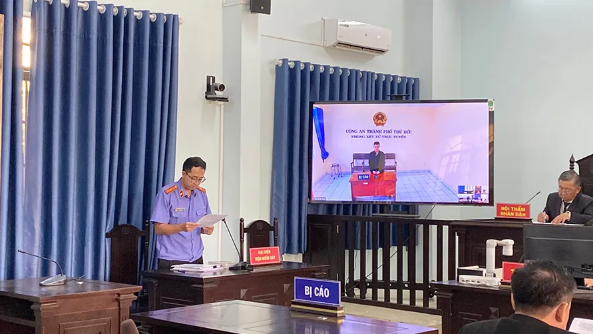Legal Action: The Right Path for Businesses Facing Online Defamation
Many companies have recently fallen victim to online smear campaigns. In such cases, instead of engaging emotionally or responding on social media, the proper and sustainable solution is to pursue legal remedies such as lawsuits, administrative complaints, or criminal reports.
Civil lawsuits and compensation claims
Under Vietnam’s Civil Code 2015, legal entities whose reputation or honor is infringed have the right to file lawsuits in court. Businesses can demand corrections, public apologies, and compensation for damages. Strong evidence, often notarized by bailiffs, is crucial. Economic loss and reputational harm are also key grounds for compensation.

This approach shows respect for the law and avoids perceptions that large businesses are abusing their power to silence critics.
Administrative measures
Enterprises may submit complaints to specialized authorities such as the Department of Information and Communications or the Authority of Broadcasting and Electronic Information. Under the Cybersecurity Law, Decree 15/2020, and Decree 14/2022, individuals spreading false information can face fines from 10 to 15 million VND and be forced to remove the content.
Criminal proceedings for serious cases
If the defamation is organized and causes severe harm, businesses may file reports with investigative agencies. Violators can be prosecuted for “defamation” (Article 156 of the Penal Code) or “abuse of democratic freedoms” (Article 331). However, criminal cases usually require lengthy investigations and trials, so businesses should evaluate carefully.
International practices
Globally, many jurisdictions enforce strong protections. The EU’s Digital Services Act (DSA) obliges tech platforms to remove false information. Singapore’s POFMA law allows authorities to issue correction and takedown orders. In China, companies like Tesla and BYD have successfully sued individuals spreading fabricated claims, securing public apologies and compensation.
Case studies in Vietnam
Vietnamese courts have also recognized corporate victims of online defamation. In 2022, the People’s Court of An Nhon (Binh Dinh) ordered a Facebook user to apologize and compensate a local business. In 2025, the People’s Court of Thu Duc City sentenced Trương Thanh Tịnh (Mr. Lee) to nine months in prison for posting false and defamatory content that damaged a company and its owner.
Conclusion
In the complex digital era, legal action is the most effective tool for businesses to protect themselves. Beyond safeguarding their interests, companies help set standards for a more transparent and civil online environment, ensuring fair competition and accountability under the law.
Ý kiến bạn đọc
Những tin mới hơn
Những tin cũ hơn
-
 Định danh mạng xã hội: Xây dựng văn hóa trách nhiệm trên không gian ảo
Định danh mạng xã hội: Xây dựng văn hóa trách nhiệm trên không gian ảo
-
 TPHCM: Quyết tâm phủ sóng “Công dân số” toàn diện vào quý 2-2026
TPHCM: Quyết tâm phủ sóng “Công dân số” toàn diện vào quý 2-2026
-
 Hướng dẫn mới về bồi thường và xác định diện tích đất ở theo Nghị quyết 254
Hướng dẫn mới về bồi thường và xác định diện tích đất ở theo Nghị quyết 254
-
 "Bẫy" Nợ Thuế Từ Những Mã Số Thuế Kinh Doanh "Bỏ Quên"
"Bẫy" Nợ Thuế Từ Những Mã Số Thuế Kinh Doanh "Bỏ Quên"
-
 Siết chặt quản lý đo lường, chất lượng xăng dầu theo quy định mới
Siết chặt quản lý đo lường, chất lượng xăng dầu theo quy định mới
- Đang truy cập270
- Hôm nay80,144
- Tháng hiện tại606,542
- Tổng lượt truy cập11,831,418
-
 Khởi tố Đoàn Văn Sáng vì tội giết người ở Lạng Sơn
Khởi tố Đoàn Văn Sáng vì tội giết người ở Lạng Sơn
-
 Luật Thuế GTGT 1/1/2026: Bước Ngoặt Cho Hộ Kinh Doanh Và Nông Nghiệp
Luật Thuế GTGT 1/1/2026: Bước Ngoặt Cho Hộ Kinh Doanh Và Nông Nghiệp
-
 Luật Thuế TNCN 2025: Chính Thức Áp Dụng Biểu Thuế 5 Bậc Mới
Luật Thuế TNCN 2025: Chính Thức Áp Dụng Biểu Thuế 5 Bậc Mới
-
 Quy định mới: Tiền lương từ 5 triệu đồng phải chuyển khoản
Quy định mới: Tiền lương từ 5 triệu đồng phải chuyển khoản
-
 Gold price gap between SJC and global market narrows by VND 6 million
Gold price gap between SJC and global market narrows by VND 6 million








